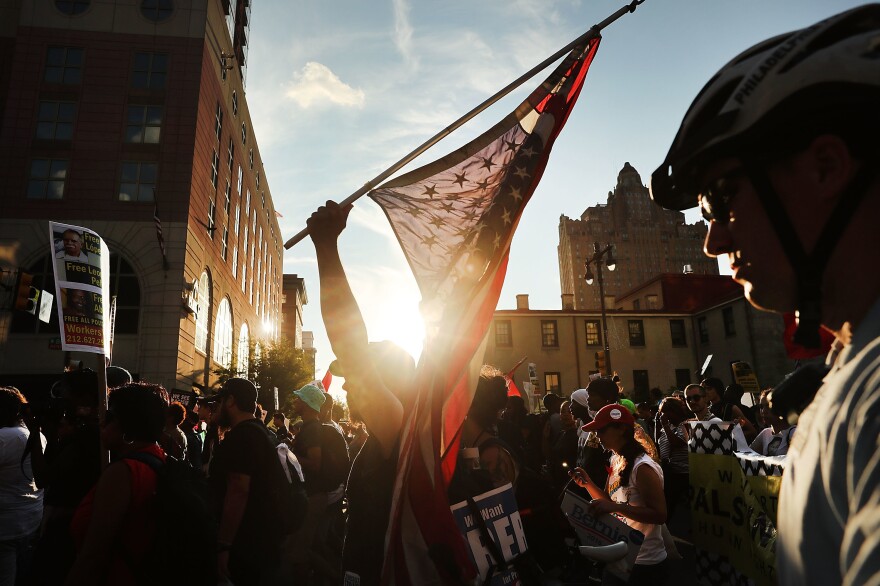Hundreds marched 6 miles through the heart of the nation's birthplace on Tuesday in the first high-profile street protest for more police accountability during the Democratic National Convention.
Organized by activists from the Black Lives Matter movement and other groups with the Philly Coalition for R.E.A.L. Justice, the hours-long demonstration started in North Philadelphia, a historically black neighborhood sprinkled with vacant lots and boarded-up buildings that had been left out of the convention's spotlight.
"This is where the brutality begins," said Asa Khalif, a march organizer who also leads the Pennsylvania chapter of Black Lives Matter. "This is 'the hood.' And we need to educate our people in this 'hood' to let them know we haven't abandoned them."
Protesters raised red, black and green Pan-African flags as organizer Erica Mines used a bullhorn from the back of a flatbed truck to call out "Philando Castile," "Walter Scott" and names of other people who died after police-involved shootings.
Demonstrators responded, "We honor you," before handwritten signs with each of the victims' names were distributed to be carried during the march. Police officers on bicycles and in vehicles escorted the crowd down Broad Street to the Wells Fargo center.
The protest took place hours before Lezley Mc Spadden, mother of Michael Brown; Gwen Carr, mother of Eric Garner; and other mothers who lost children in high-profile incidents — many of which involved police — took the stage at the convention.

But Shandre Delaney, a 57-year-old protester from Pittsburgh, said she was more interested in hearing about Hillary Clinton's policy proposals to demilitarize police departments and end mass incarceration.
"We can talk about what's going on all day long, but if nothing's going to be done, then our talk is just being wasted," said Delaney, who is the mother of two sons.
North Philadelphia resident Anthony Dickerson sympathizes with the protesters but said he is concerned about taxpayers having to pay large settlements in civil lawsuits against police departments by families of police shooting victims. It's a concern many of his neighbors share, he said, but he didn't expect many of them to speak out in the streets.
"Most people in the neighborhood, they're not going to come out," Dickerson said. "They just don't feel it's going to be productive. They're under so much duress for so long that they don't have any faith in the system."
Copyright 2021 NPR. To see more, visit https://www.npr.org.




